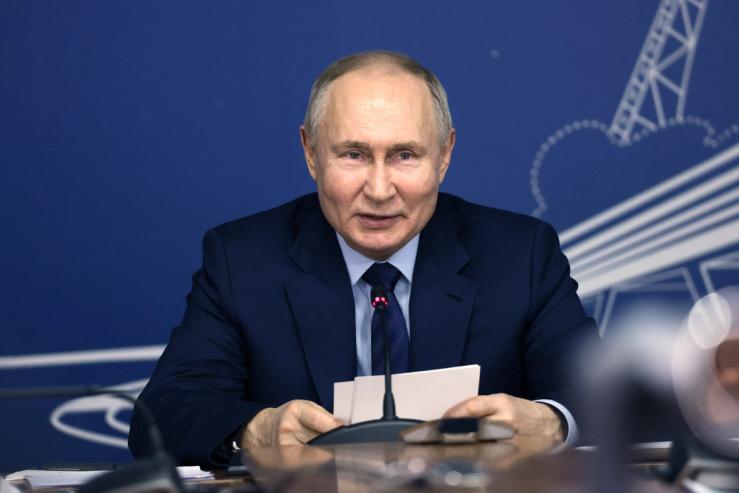The News
With less than a month to go before Russia’s elections, President Vladimir Putin has further consolidated power around himself, with the death of his most formidable domestic opponent Alexei Navalny on Friday and opposition candidates barred from running.
Western leaders said Putin was responsible for Navalny’s death, after Russia’s leading opposition figure was repeatedly denied medical care and forced to share a cell with an infectious inmate, and to spend more than 300 days in solitary confinement. His immediate cause of death is unknown.
Independent Russian outlets have reported that the Kremlin is seeking to ensure that Putin receives more than 80% of the votes in the March 15-17th election. The Russian president has previously changed the constitution to allow him to stay in power until 2036, while the country’s online voting system has been decried as rigged by independent watchdogs, and opposition candidates have frequently been prevented from running against him.
As protests broke out across the country Friday, Kremlin insiders told Russian outlets said his death creates an uncertain moment, as both the Kremlin and the opposition wait to see how the population will react – although few Russia-watchers expect Navalny’s death to seriously destabilize Putin’s carefully orchestrated reelection.
SIGNALS
Navalny’s death could be ‘very negative’ for Putin’s reelection bid
Sources close to the Kremlin told the investigative outlet Meduza that the death of Navalny is a “very negative event” for Putin’s election campaign, but said they did not believe it would seriously impact the vote. Even so, Navalny’s death, along with Putin’s long-standing but unproven fear of Western election interference, may push Russia’s leader “to take an even more hawkish, more repressive approach” in the lead up to the election,” the prominent Russia expert Tatiana Stanovaya said. Meanwhile, Russian opposition forces are calling for Russians to go to the polls, despite the widespread expectation that results will be rigged in Putin’s favor. “Remember what Alexei told us to do,” the anti-war organization Vesna wrote on Telegram, “vote for any candidate except Putin.” However, Navalny’s death is unlikely to galvanize a Russian population that largely accepted the invasion of Ukraine and Russia’s military call-up to turn against the regime, the Russian journalist Andrei Kolesnikov wrote for Carnegie Politika.
Russians opposed to Putin struggle to find a viable candidate
Russians who oppose Putin find themselves with few alternatives on the ballot. Boris Nadezhdin — an anti-war candidate who referred obliquely to Putin as a “dictator” — gained over 100,000 signatures in a bid to run for president, but was barred by Russia’s Central Election Commission – whose decisions most experts believe are set by the Kremlin. Nadezhdin has appealed the ruling, but few Russia experts expect that he will be allowed to run. Another opposition candidate, Yekaterina Duntsova, was barred from standing for election in December.
“In such a fallow political field, where only Mr. Putin reigns, anyone who appears to offer a clear alternative immediately becomes a superstar,” Russian journalist Mikhail Zygar wrote in The New York Times. Of the registered candidates, Vladislav Davankov of the New People Party — a liberal party backed by the Kremlin — seems the most likely to become the alternative-to-Putin candidate. Despite Davankov’s ties to the Kremlin, if Putin’s opponents were to rally behind him, “he could become the antiwar candidate even against his will,” Zygar wrote.
Navalny’s political activism turned Russia ‘upside down’
Navalny turned Russian political life “upside down,” a former staffer of the celebrated activist told the Russian independent outlet 7x7. “He gave us the feeling that anything was possible.” While Navalny was not allowed to run against Putin in the 2018 presidential election, his campaign galvanized Russia’s faltering democracy and cemented his position as Russia’s leading opposition figure. In 2020, Navalny’s allies were able to win several regional elections despite widespread vote-rigging. Above all, the former lawyer’s campaigns focused on Russia’s rampant corruption: “He knew what mobilized people: not universal values, but outrage against widespread theft by a clique of thugs,” The Washington Post’s Damir Marusic wrote.



